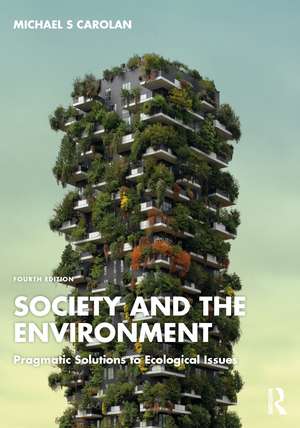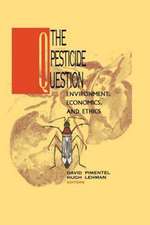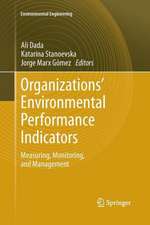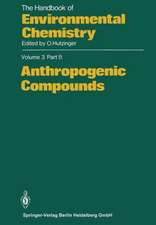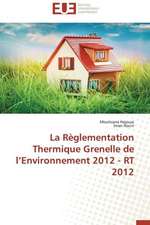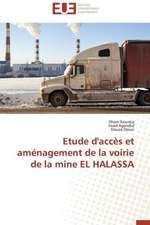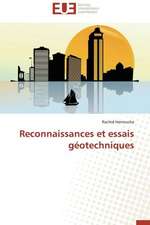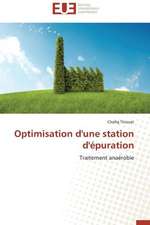Society and the Environment: Pragmatic Solutions to Ecological Issues
Autor Michael S Carolanen Limba Engleză Paperback – 18 apr 2024
Each chapter in this interdisciplinary text follows a three‑part structure beginning with an overview of what is wrong and why. This leads into a discussion on each issue’s wide‑ranging implications and, finally, a balanced consideration of realistic solutions. Featuring updated and expanded examples, discussion points, and coverage of recent developments, including the US withdrawing from the Paris Agreement, “booming” national economies and wealth distribution, growing global interest in environmental justice—with particular focus on the links between injustice and race and inequality—climate change, and renewable energy, this new edition remains an essential companion for courses on environmental sociology and sustainability.
| Toate formatele și edițiile | Preț | Express |
|---|---|---|
| Paperback (2) | 384.66 lei 3-5 săpt. | +24.85 lei 7-13 zile |
| Taylor & Francis – 18 apr 2024 | 384.66 lei 3-5 săpt. | +24.85 lei 7-13 zile |
| Taylor & Francis – 19 mar 2020 | 546.63 lei 6-8 săpt. | |
| Hardback (2) | 770.98 lei 6-8 săpt. | |
| Taylor & Francis – 18 apr 2024 | 770.98 lei 6-8 săpt. | |
| Taylor & Francis – 25 mar 2020 | 882.08 lei 6-8 săpt. |
Preț: 384.66 lei
Preț vechi: 418.11 lei
-8% Nou
Puncte Express: 577
Preț estimativ în valută:
73.60€ • 76.85$ • 60.92£
73.60€ • 76.85$ • 60.92£
Carte disponibilă
Livrare economică 15-29 martie
Livrare express 01-07 martie pentru 34.84 lei
Preluare comenzi: 021 569.72.76
Specificații
ISBN-13: 9781032556710
ISBN-10: 1032556714
Pagini: 362
Ilustrații: 140
Dimensiuni: 178 x 254 x 26 mm
Greutate: 0.57 kg
Ediția:4
Editura: Taylor & Francis
Colecția Routledge
Locul publicării:Oxford, United Kingdom
ISBN-10: 1032556714
Pagini: 362
Ilustrații: 140
Dimensiuni: 178 x 254 x 26 mm
Greutate: 0.57 kg
Ediția:4
Editura: Taylor & Francis
Colecția Routledge
Locul publicării:Oxford, United Kingdom
Public țintă
Academic, Postgraduate, and Undergraduate AdvancedCuprins
1. Introduction: Individuals, Societies, and Pragmatic Environmentalism
Part I: Living in a Material World
2. Greenhouse Gases: Warmer Isn’t Better
3. Waste: Our Sinks Are Almost Sunkfcase
4. Biodiversity: Society Wouldn’t Exist Without It
5. Water: There’s No Substitute
Part II: At the Intersection of Ecology and Society
6. Population: A Problem of Quantity or Quality
7. Transportation: Beyond Air Pollution
8. Food: From Farm to Fork
9. Energy Production: Our Sun-ny Prospects
Part III: Organizing a Sustainable Society
10. Political Economy: Making Markets Fair and Sustainable
11. Governance: Biases and Blind Spots
12. Inequality and Growth: Prosperity for All
Part IV: Shifting the Focus to Results
13. From Our Beliefs to Our Behaviors: Pragmatic Environmentalism in Action
Glossary
References
Part I: Living in a Material World
2. Greenhouse Gases: Warmer Isn’t Better
3. Waste: Our Sinks Are Almost Sunkfcase
4. Biodiversity: Society Wouldn’t Exist Without It
5. Water: There’s No Substitute
Part II: At the Intersection of Ecology and Society
6. Population: A Problem of Quantity or Quality
7. Transportation: Beyond Air Pollution
8. Food: From Farm to Fork
9. Energy Production: Our Sun-ny Prospects
Part III: Organizing a Sustainable Society
10. Political Economy: Making Markets Fair and Sustainable
11. Governance: Biases and Blind Spots
12. Inequality and Growth: Prosperity for All
Part IV: Shifting the Focus to Results
13. From Our Beliefs to Our Behaviors: Pragmatic Environmentalism in Action
Glossary
References
Notă biografică
Michael S. Carolan is the Co‑director of the Food Systems Institute for Research, Engagement and Learning, Professor of Sociology, and Food Systems Specialist for the Office of Engagement and Extension. Other appointments include Visiting Professor, Ruralis Research Institute, Trondheim, Norway; Research Affiliate, Centre for Sustainability, University of Otago, Dunedin, New Zealand; Co‑editor for the Journal of Rural Studies; Co‑editor for the British Food Journal; and Associate Editor for the journal Sustainability. Professor Carolan has published over 300 peer‑reviewed articles.
Descriere
The fourth edition of Society and the Environment centers its discussion on realistic solutions to the problems that persist and examines current controversies within a socio-organizational context, shifting focus away from simply explaining what is wrong with the world around us.
Recenzii
An engaging, well-organized, and comprehensive treatment of the core issues in environmental sociology. Carolan’s conversational style and pragmatic focus will help students connect with the subject rather than become depressed. Richard York, University of Oregon
I think this book is unique in its foregrounding of pragmatism. Even though both Bell and this book are positive, I think the manuscript in progress is more hopeful and accessible than Bell’s book. The special strength that would appeal to my students is its interdisciplinarity, its accessibility, and its lack of social scientific jargon.
Shaunna Scott, University of Kentucky
Carolan masterfully presents complex environmental problems (and their solutions) in a concise and lucid manner that will hold students’ attention. The standard framework for considering issues, the inclusion of exceptional case studies and ethical questions that will create a point of departure for many good class discussions, and the consideration of applied and practical efforts to protect the environment and manage resources all contribute to making this an excellent text and the backbone for any course in environmental sociology. Hats off to the author!
Stephanie McSpirit, Eastern Kentucky University
I think this book is unique in its foregrounding of pragmatism. Even though both Bell and this book are positive, I think the manuscript in progress is more hopeful and accessible than Bell’s book. The special strength that would appeal to my students is its interdisciplinarity, its accessibility, and its lack of social scientific jargon.
Shaunna Scott, University of Kentucky
Carolan masterfully presents complex environmental problems (and their solutions) in a concise and lucid manner that will hold students’ attention. The standard framework for considering issues, the inclusion of exceptional case studies and ethical questions that will create a point of departure for many good class discussions, and the consideration of applied and practical efforts to protect the environment and manage resources all contribute to making this an excellent text and the backbone for any course in environmental sociology. Hats off to the author!
Stephanie McSpirit, Eastern Kentucky University
